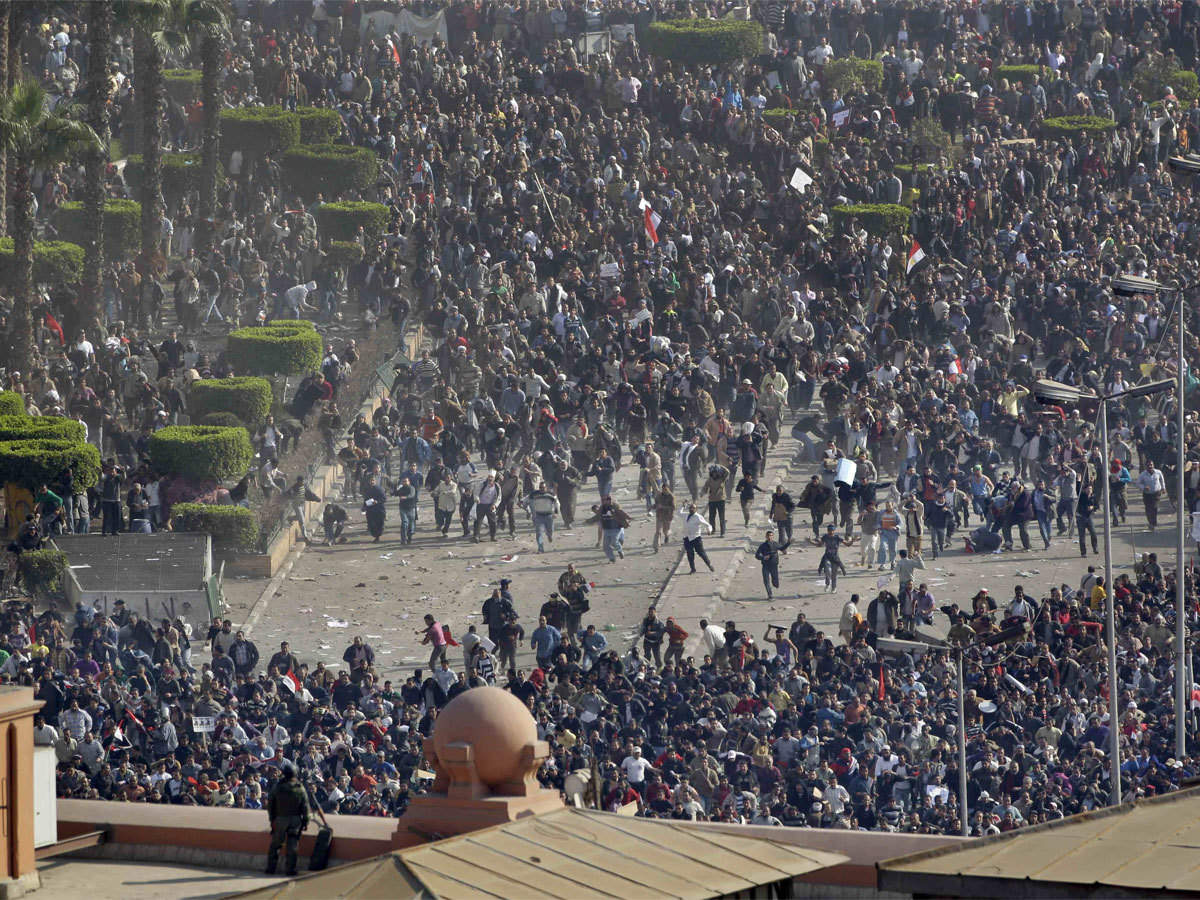A military coup in Sudan has dealt another blow to democracy in the Arab world
Months after a power grab by the president of Tunisia, where the 2011 Arab uprisings were born, For some, the latest setbacks spell the end of the democratic experiment in a region rocked by a decade of war and counter-revolution, which in some cases have seen the return of the repressive status quo.
But others say it is too early to write the obituary of liberal democracy in the Arab world. One of those is Moncef Marzouki, whose fate has tracked that of the Arab revolts.
Read more on New Tottenham manager Antonio Conte is a serial winner who can change the club’s
A human rights activist who was imprisoned then exiled under Tunisia’s former dictator Zine El Abidine Ben Ali, Marzouki returned home and was elected president following the 2011 revolution.
Today, he has returned to the role of exiled opposition figure in France, becoming the most vocal critic of President Kais Saied who sacked the government and seized a range of powers in July.
Marzouki’s fate underlines the sense that the region’s democratic experiment has failed — but he says reports of the Arab Spring’s death are greatly exaggerated.
“Ten years is nothing in the life of a people,” he told AFP from Paris, where he lived in exile for a decade during Ben Ali’s rule. “History shows that revolutions always take a lot longer than that.”
Return to authoritarianism?
Not everyone shares his optimism. Pascal Boniface, head of the French Institute for International and Strategic Affairs (IRIS), argued that the revolts have so far failed.
“Several authoritarian regimes have been re-established or kept going — at the price of blood and destruction in Syria, blind repression in Egypt, crushed revolts like in Bahrain and a civil war on top of a humanitarian catastrophe in Yemen,” he said.
“In Algeria, the Hirak (protest movement) is waning, in Sudan and Tunisia, democratic gains are in danger, not to mention the chaos in Libya and Iraq.”
Tunisia was the first country to rise up against a repressive post-independence political regime, overthrowing Ben Ali and sparking more revolts across the region.
Read More South Africa coach Jacques Nienaber has made three changes to his starting back division
The country won plaudits for its democratic transition even after Egypt, where Hosni Mubarak was toppled, returned to more repressive ways and Syria and Libya collapsed into all-out civil war.
But on July 25, Tunisia’s Saied sacked the government and began to seize sweeping powers after months of political and economic crisis.
While many Tunisians tired of what they saw as a corrupt and inept political class welcomed his move, others took it as evidence that the democratic experiment was over in the birthplace of the Arab Spring.
And as if to emphasise the point, Sudan, a late arrival to the revolts with a mass uprising that overthrew autocratic Omar Al-Bashir in 2019, last month took a leap backwards with a military coup.
‘Counter-revolution’
Since Saied’s power grab, Marzouki has used regular appearances on pan-Arab satellite channel Al-Jazeera — the main voice of the 2011 uprising’s revolutionaries — to launch withering broadsides against Saied.
The 76-year-old argued that “you can’t say the Arab Spring has failed because the factors that led to it haven’t been resolved — rather they’ve worsened”.
Moreover, “saying that the revolutions have failed because there was a reaction isn’t logical. There’s a counter-revolution after every revolution,” he said, citing the United Arab Emirates, Saudi Arabia and Egypt as forces against a democratic “tide”.
“They know that if Egypt for example had stayed a democracy, that would have affected the whole region,” Marzouki said.
Boniface agreed that “interfering external powers” both from the Arab world and beyond had “aggravated every situation”.
High on the list of Emirati, Saudi and Egyptian fears, says observers, is the empowerment of the Muslim Brotherhood, a transnational network espousing political Islam.
Marzouki, who shared power with the Islamist-inspired Ennahdha party in the early days of Tunisia’s democratic decade, said Islamists had “generally played a negative role” — but he defended their right to be involved in politics.
‘Arab volcanoes’
Isabelle Werenfels, a North Africa researcher at Germany’s SWP think tank, said “the Arab Spring clearly was not a success, but nor was it a total failure”.
“It has changed the horizon of the possible,” she said. “It’s difficult, especially in Tunisia, to take away people’s freedom once they’ve tasted it.”
She added that “democratisation can’t fully function without economic prosperity. Free elections don’t give people a livelihood.”
Another difficulty, said Werenfels, is that democracy activists in the Arab world can no longer count on support from European governments.
After a 2015 migrant influx driven mostly by Syrians, they “tend to emphasise stability and security rather than democratisation”.
Marzouki, though, remains optimistic about the fate of the Arab Spring.
“I prefer the term ‘Arab volcanoes'”, he said. “When a volcano erupts once, it always erupts again.”
AFP



